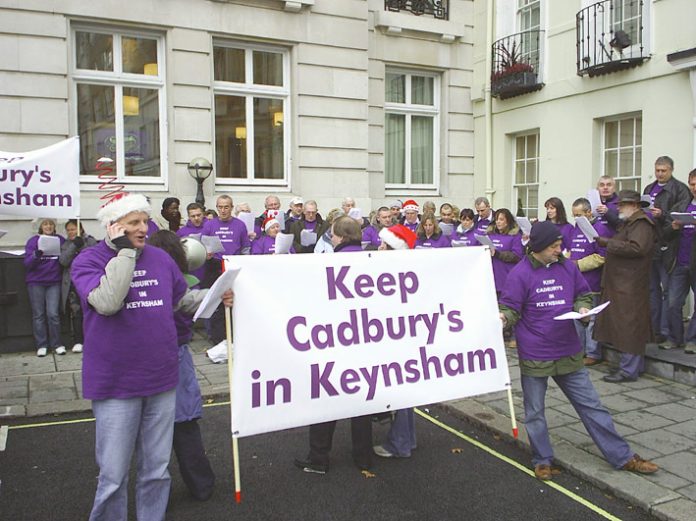
Price inflation of goods leaving UK factories reached its highest rate in 16 years, driven higher by petrol and food costs, official figures published yesterday showed.
Annual output price inflation reached 4.5 per cent in November, up from 3.8 per cent the previous month, according to the Office for National Statistics (ONS).
This is the highest rate of factory gate price inflation since August 1991, when it reached 5.2 per cent.
The ONS said in a statement: ‘In November, output price annual inflation for all manufactured products rose to 4.5 per cent.
‘Input price annual inflation rose from 8.5 per cent in October to 10.3 per cent in November.
‘Month on month, the output prices measure for all manufactured products rose 0.5 per cent in November, mainly reflecting rises in petrol and food products.’
It added: ‘Month on month, the input prices measure of UK manufacturers’ materials and fuels rose 3.4 per cent.
‘This mainly reflected rises in the prices of crude oil, fuel and home produced food.’
In response to the leap in factory gate prices, City analysts said this could hold back the Bank of England from further rate cuts, warning that inflationary pressures are still building up down the supply chain.
The Bank’s rate-setting Monetary Policy Committee reduced the key UK interest rate from 5.75 per cent to 5.5 per cent last week amid signs that the economy is slowing.
The figures indicate that manufacturers were unable to absorb these rising input prices.
Output prices of petrol products climbed 18.5 per cent in the year to November, the largest rate of increase since July 2000, when it was 20.1 per cent.
Meanwhile, a sharp rise in the price of fresh bread and cakes drove up annual food price inflation to 6.6 per cent, the fastest pace of increase in 14 years.
Also, workers at Rolls Royce’s eight sites across the UK joined a national protest yesterday lunchtime in support of colleagues fighting to save the Rolls Royce car plant in Bootle on Merseyside, at a cost of 212 jobs.
More than 10,000 workers have signed a petition.
Thirty-minute protests were held outside Rolls-Royce plants in Bootle, Bristol, Coventry, Derby, Sunderland, Barnoldswick, Inchinnan in Renfrewshire and East Kilbride in Glasgow.
The Bootle plant, which makes turbines for the oil and gas industries, is due to close next year, and production moved to the US, with Rolls Royce citing high costs and sterling’s strength against the US dollar.
Ian Tonks, Unite national officer, said: ‘It is scandalous that a global employer like Rolls-Royce can abandon its loyal workforce and shift production abroad.’
Also, yesterday lunch time workers from Cadbury’s factory in Keynsham, near Bristol, held a Christmas Carole picket outside the company’s headquarters in Berkeley Square London.
The lively contingent of over a hundred workers let their feelings be known that Cadbury’s proposal to move the plant to Poland was unacceptable to themselves and also unacceptable to the Polish trade unions organised under Solidarinozk.
Over 500 direct jobs at the plant, and another 500 in support services, will be lost to the community which will ‘devastate the whole surrounding area in Bristol’, Cadbury worker Andrew Clarke said.
He added: ‘This used to be a caring company that looked after you well, it’s like a shot through the heart to send our jobs to Poland.’